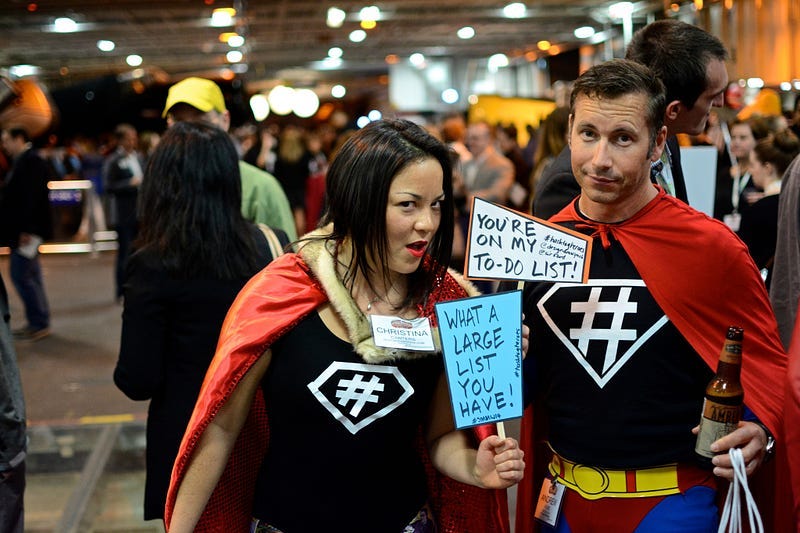AI Lessons from Marketing’s Social Media Era
Looking back at the social media era, a two-way conversation was supposed to empower new freedom and break down traditional power…
Looking back at the social media era, a two-way conversation was supposed to empower new freedom and break down traditional power structures. Seminal books like The Cluetrain Manifesto promised a world where consumers were empowered to fight back against advertisers.
Things started out well. New voices rose with blogs, and later social media accounts. They offered differing views from conventional magazines and news outlets. Brands like BP during the Deep Horizon gulf oil spill were suddenly held accountable with massive waves of backlash on Twitter. Brands quickly built out their own presences online to participate in (and hopefully mitigate) those conversations. In some cases, like the Arab Spring in Egypt, the periodic government was turned over.
Fast forward to 2019. What happened?
Big money is what happened. This is not to poo-poo capitalism or marketing a business. It’s what we do.
But once media corporations like Facebook and Twitter sought to harness the digital conversation and changed their algorithmic streams to source the most exciting conversations — including ads — the world changed. The social media world was no longer equitable.
Brands could avoid the conversation and still become successful. Influencers became their own insular power structure delivering information audiences much like a mini media outlet. Many influencers sacrificed authenticity and transparency. Like the businesses that work with them, influencers are trying to earn a living and retain market position and in doing so many stopped relentlessly catering to their followers.
Rather than find new voices and highlighting truth, political, special interests and brand forces found they could polarize the human spirit. Disinformation, half-truths, and gaslighting the public become possible as large swaths of the population fell into tribes, believing like-minded individuals and questing interpretations of facts.
Fall Out

This new digital tribalism makes it much easier to sell and retain power. Is it all black and white, bad versus good? Far from it.
Social media still empowers the underdog, as evidenced by the occasional consumer uprising (usually against an airline it seems) or a political movement like #metoo or #blacklivesmatter, but it is much harder to affect change. Instead, consumers and individuals are harvested by brands, power structures and individual marketers on the public web.
AI has helped digital media brands and advertisers achieve these outcomes. From social network segmentation and interestingness algorithms to cookied serving of ads and associating personal interests with advertising records, AI empowers brands to harness social media for profit. In doing so, AI forged its marketing blueprint.
That doesn’t mean that every brand looks at social networks — or AI — as a means to advertise and grow their businesses while simultaneously minimizing customer feedback. Some brands perform very well in the conversation, actively engaging and participating in dialogue with their customers and stakeholders. Brands like Wendy’s deliver hilarious snark on Twitter. Smartphone case company Peel brings real responses and great content on Instagram.
Outliers are everywhere. They have garnered the successes and recognition they deserve for going above and beyond their competitors.
Less visible or perhaps more natural to ignore are the many brands who fail to perform well in social media realms. That is until AI empowered them to better scale and advertise in social networks while avoiding participation.
Will AI Brands Be Held Accountable?
Moving forward into the future, marketing AI implementations will suffer from a similar trend wave as corporate social media. Here is my theory on how this unfolds:
Usually, individuals or brands do what’s best for them first, subtly persuaded by the needs of personal and business success.
Speed-to-market, data acquisition, and lower human resource and technology costs will cause brands to cut corners.
Ideal behaviors and best practices are often ignored as a result.
Outliers who are painstaking about their machine learning implementations will separate themselves from their competitors and establish best practices.
When it comes to making a dollar or retaining a job Maslow’s hierarchy of needs take precedence. On an individual level, physiological, safety and self-esteem are more important than ideological principles. For organizations, profits, mission objective, and power reign supreme. Because employees have Maslowian needs, organizations rarely see their goals thwarted.
Smart brands will see that doing the right thing is the means to maximum success and lower risk. They will become the outliers.
Some AI implementations will suffer spectacular ethical and data failures in the most embarrassing fashion. They will be the brands that suffer 4% losses according to Forrester as their biases and moral issues are exposed to the public. But most brands who cut corners will not explode on a national stage. Instead, they will merely spam their customers in newer more precise, and perhaps creepy ways.
The real question is whether or not marketers that dishonestly use AI will be held accountable?
Ironically, often it still takes outside traditional and social media forces to make a brand or an individual accountable in the digital era. Whether advertisers are attacked for backing xenophobic news programs or Google is challenged for reverse discrimination against white male employees, the public groundswell still retains power.
However, unlike the beginning of the social media era, these movements usually need to achieve mass consciousness and aren’t always effective. Consider the successful Supreme Court nomination of Brett Kavanaugh despite significant outcry from the #metoo movement, which has been very successful in felling accused male predators in the media business.
Some fear a darker marketing AI future in which an equitable balance may be found. AI will likely be used to reduce and take away privacy. The quest for data will destroy (and perhaps replace) conventional norms for what can and should be monitored on an individual basis.
When marketers use that data to mine customer populations without considering trust, it could backfire. Brands will lose trust, and they will lose customer loyalty. When this happens, customers view them as a transactional player, a brand to use when they need something. Or simply avoid the brand if there are any other viable options.
What do you think?






